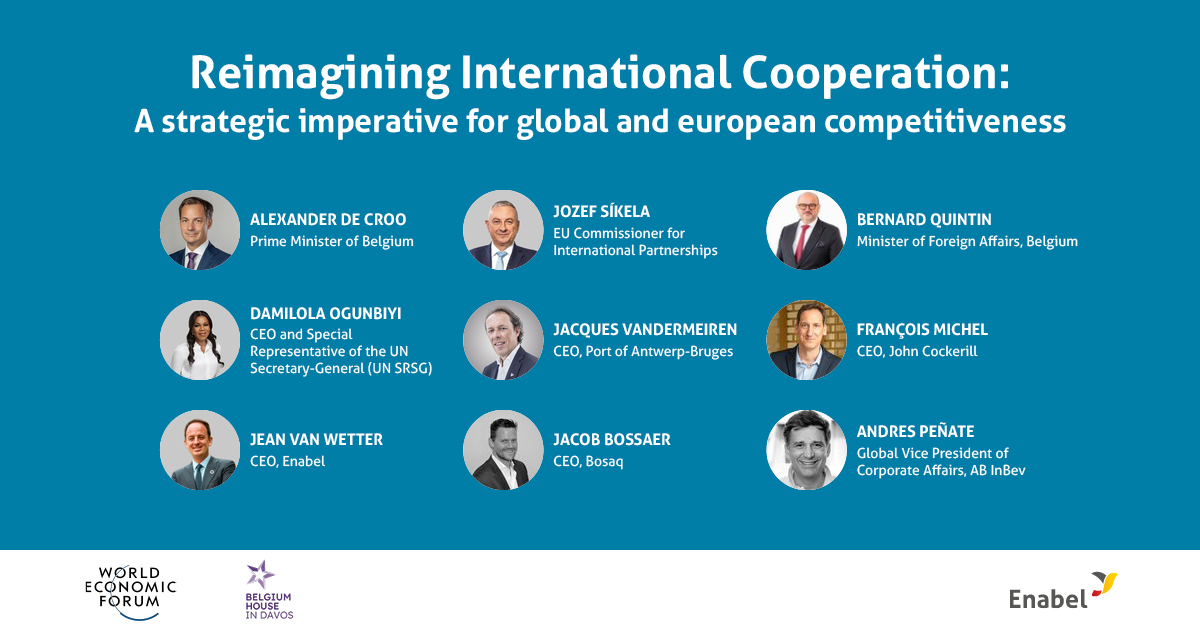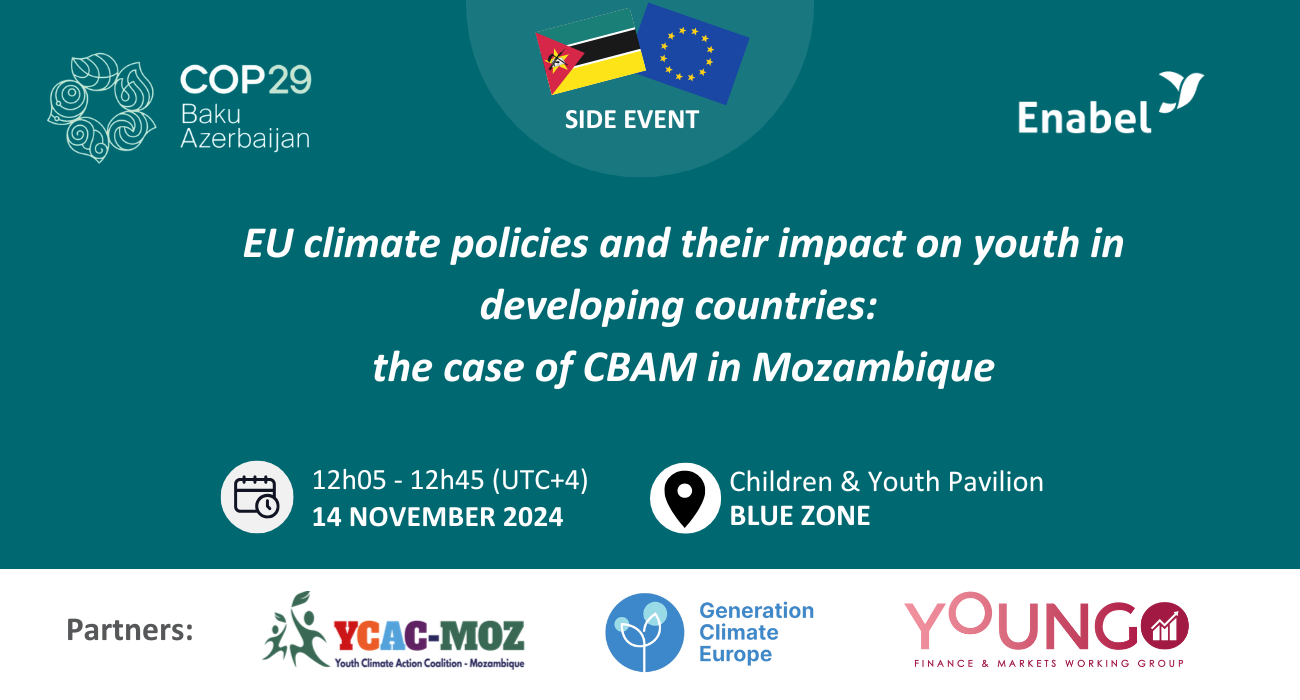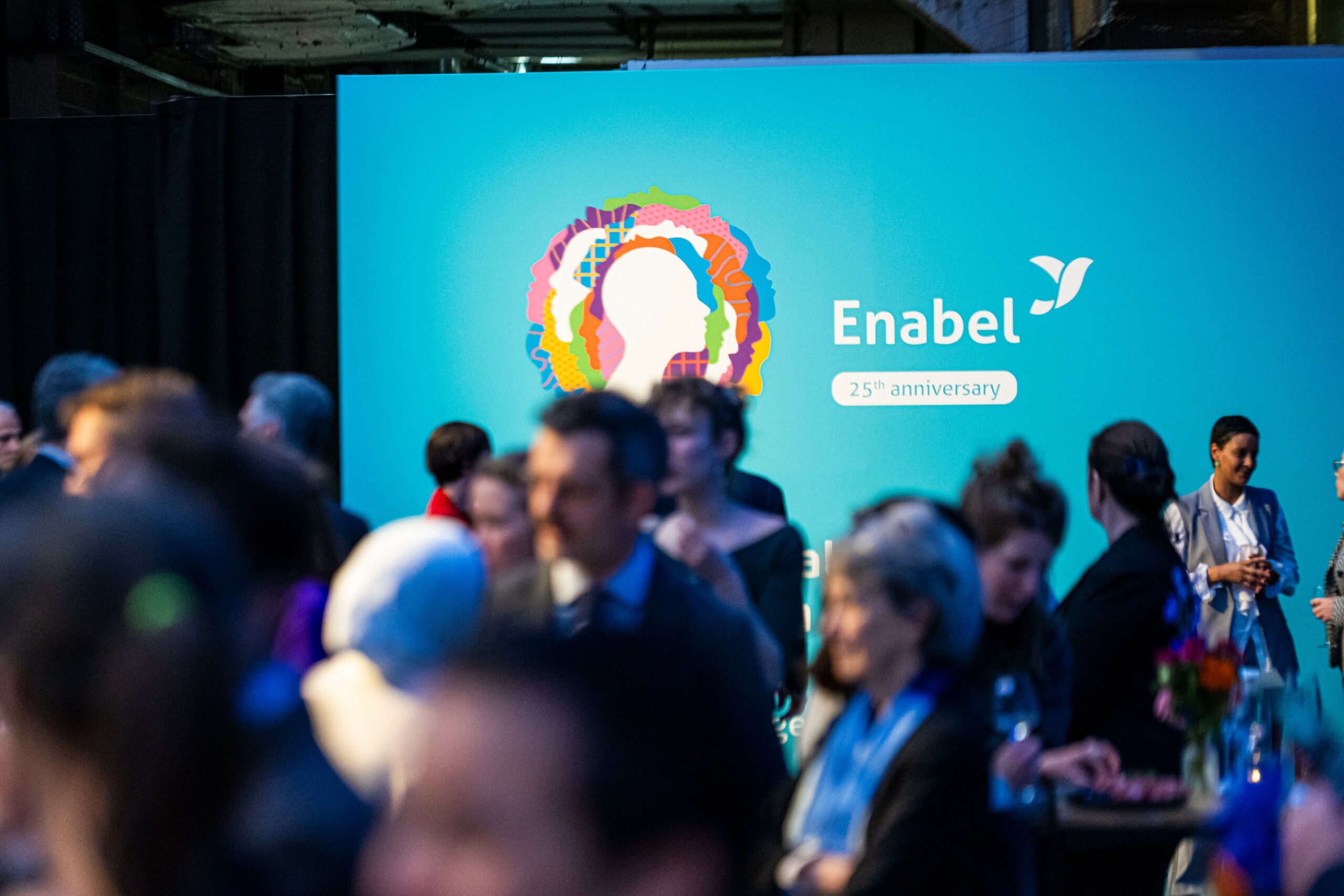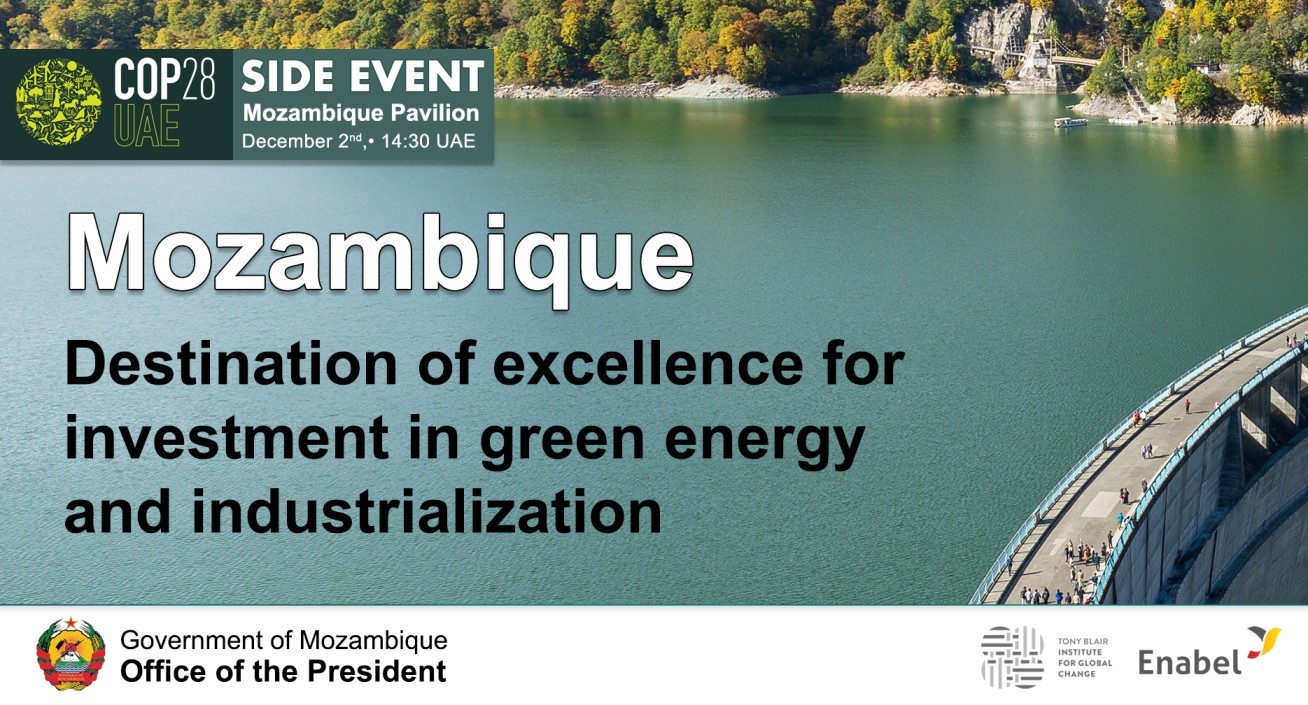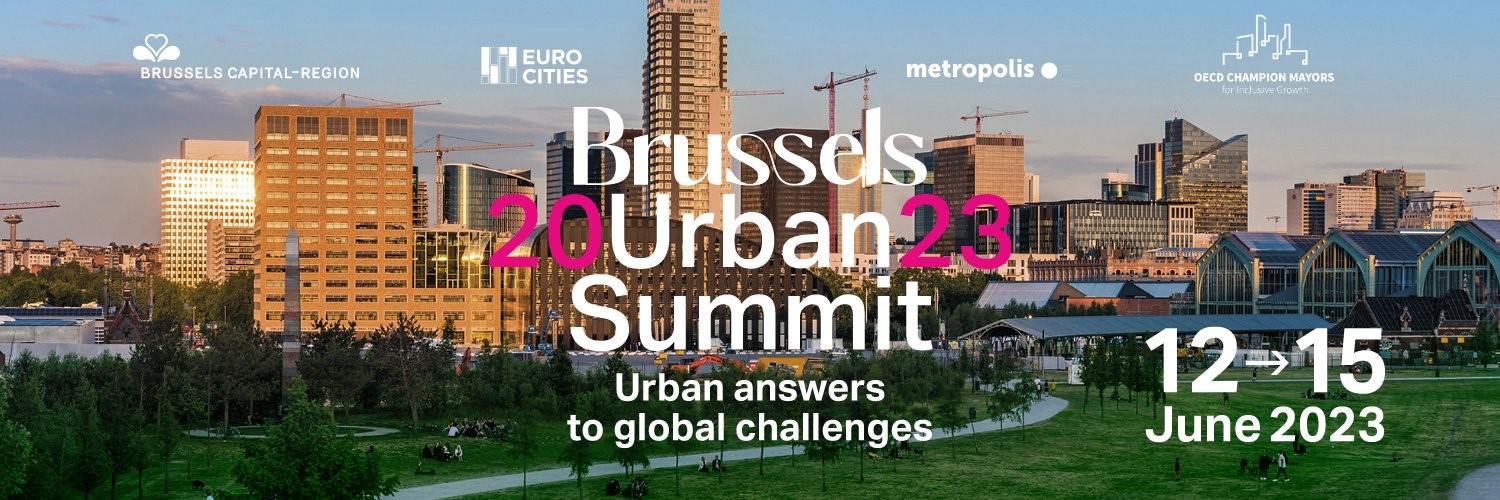Events
25 October 2024
Delivering impact by strengthening collaboration in fragile low-income contexts
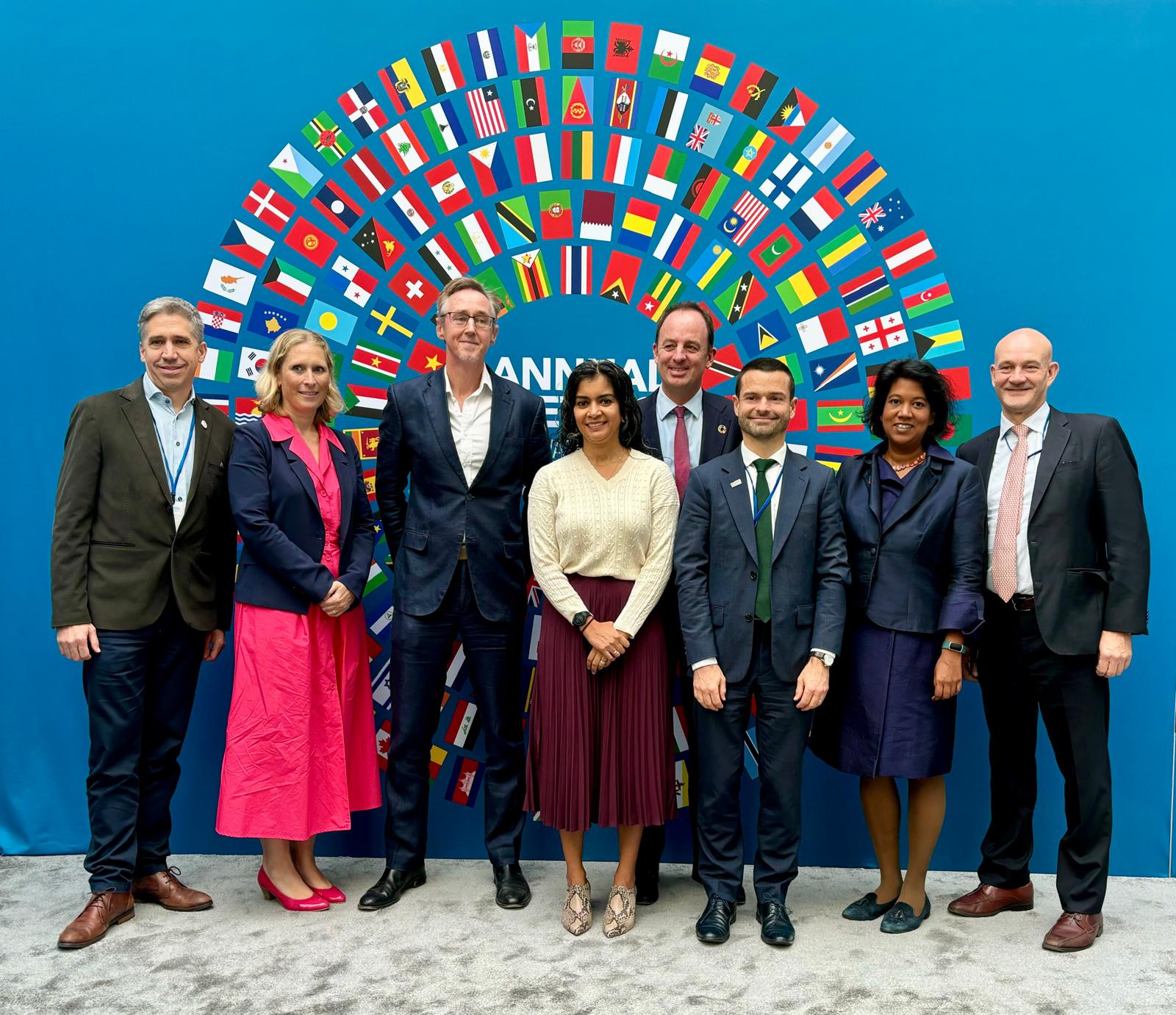
In the framework of the 2024 World Bank Group Annual Meeting, Enabel organised a side-event together with Expertise France, GIZ and SNV (as members of the Practitioners Network) to enter into a strategic conversation with the participants of this side event (members states, World Bank Group, development and international finance institutions, European Commission, African Union, civil society organizations and other development stakeholders) on the importance of jointly strengthening their collaboration in fragile contexts, addressing the root causes of fragility, the opportunities and challenges linked to this.
To that effect we wish to extend our sincere appreciation to N. Francken, O. Elias and J. van de Poel from the World Bank Group for making this side-event possible, as well as all participants, panelists and moderator for their valuable insights and ideas.
Reframing global challenges
Since 2020, the world is facing a series of overlapping crises that have undermined hard-won development gains. Countries experiencing fragility have been among the most impacted and will continue to be so – by 2030, nearly 60% of the world’s extreme poor will live in countries affected by fragility, conflict and violence (FCV).
Additionally, fragility risks are deeply intertwined with global challenges such as climate change, food insecurity and human mobility – making it essential to stay engaged and align the work of development partners with the Triple Nexus between development cooperation, humanitarian aid, peace and security, while delivering on the collective ambition to reach the SDGs.
“The cost of inaction is higher than staying engaged. Enabel and other European development agencies have long experience and expertise in delivering and reaching impact in fragile environments and we do strongly advocate for staying engaged. I’m very happy to be together with four agencies, the World Bank and the EU today to advocate on that matter”, declared Jean Van Wetter, CEO of Enabel.
“SDG progress is slow to non-existent in fragile contexts and the gap with the rest of the world is widening. This growing inequality and its potential impact on global stability should be of major concern to all of us. Meaningful progress towards the SDGs requires a focus on structural development to achieve systemic transformation, by increasing the resilience of local populations and public services, addressing the root causes of fragility and reducing the need for humanitarian aid. This also means building long-term partnerships, a strong presence on the ground and more coherence, not only between policies and instruments, but also between our narratives and actions: “Are we what we say we will do?
We also need strong partnerships between development agencies and multilateral development banks, development finance institutions and the private sector. Only by working together can we have the necessary impact to bring transformative change. Multilateral development banks can help build resilience and contribute to sustainable peace through job creation, infrastructure, digitalisation, agricultural innovation and facilitating access to basic services.” added Heidy Rombouts, Director General Development Cooperation and Humanitarian Aid.
Rethinking a common approach
With that in mind, the event harboured ambitions to raise three strategic questions amongst the participants (World Bank, EDFI, EC, AU, partner countries, CSO, private sector). Against the diverse background of actors present around the table, fruitful reflections arose as regards the ways financial and implementing actors can build synergies and in turn increase their impact on the world stage.
Ina Hommers, Director General Client Liaison & Business Development at GIZ, touched upon the work of development agencies and how they can contribute to more sustainable investments and better impact for all. She delved into the best practices and lessons learnt from implementation in partner countries:
“Through on-the-ground sectoral expertise coupled with long-standing, trustful networks in partner countries, the work of technical cooperation agencies helps shape project portfolio pipelines to structure investments and support partner capacity development. This ensures that partner countries are even more ready to coordinate financial assistance, set-up accountable governance mechanisms and transparent monitoring schemes. These principles also apply in contexts of fragility, conflict, and violence (FCV): Staying engaged to support stabilization of countries or regions is a necessity, given that already 2/3 of GIZ’s 120 partner countries face fragility-related challenges. If needed, our sectoral work continues in contexts of fragility, like in Ukraine and the Sahel region. In highly complex and volatile set-ups of fragility and crisis, interlinking financial assistance with technical cooperation is a key driver to ensure transparency in reaching those most vulnerable, while at the same time building resilience towards furthering the economic growth of partner countries and regions.”
SNV CEO Simon O’Connell expanded on the need to boost public and private investments in complex contexts and define ways towards integrated resilience and inclusive economic growth:
“Fragile and Conflict Affected Situations (FCAS) continue to experience substantial challenges, with extreme poverty and acute food insecurity increasingly clustered in such contexts. However, we mustn’t lose sight (or hope) of the very real development gains that have been made over recent years in current or previously highly fragile contexts and the opportunities to accelerate and build on these. At this time of increasing skepticism towards Official Development Assistance and rising nativist sentiment and self-interest, we must ensure development cooperation – including the opportunities to leverage development financing with innovative financing mechanisms and private sector funding flows – doesn’t exacerbate the already widening disparities between FCAS and less fragile environments”.
Reimagining the way forward
European development agencies contribute to collaborative solutions by strengthening the resilience of local communities, supporting peacebuilding efforts, and promoting more inclusive governance systems. Through the Practitioners Network for development – the leading network of European Development Cooperation experts – we build synergies and discuss experiences to grow our common expertise together.
The opportunity to bring forward this expertise during the World Bank Group Annual Meeting represented a great opportunity to bring around the table valuable actors and to foster impactful partnerships.
And Expertise France CEO Jérémie Pellet to conclude on the way forward:
“Operating in fragile settings raises demands for more joined-up and adaptive programming; well-informed choices of sectors, but also structured and innovative approaches to work in and on fragility – the one-size-fits-all can’t work. There is a need to tackle fragility in all its dimensions through a multi-sectorial approach and through direct engagement with local communities and to combine responses to immediate needs towards long term development, addressing the consequences and root causes of fragility through a Humanitarian-Development-Peace Nexus Approach.
While Team Europe initiatives are widely appreciated, well-known challenges exist to apply them more extensively. The need for political support beyond operational support and sufficient funding are highlighted and crucial. Strong partnership with development financial institutions such as the World Bank Group is therefore key.”

